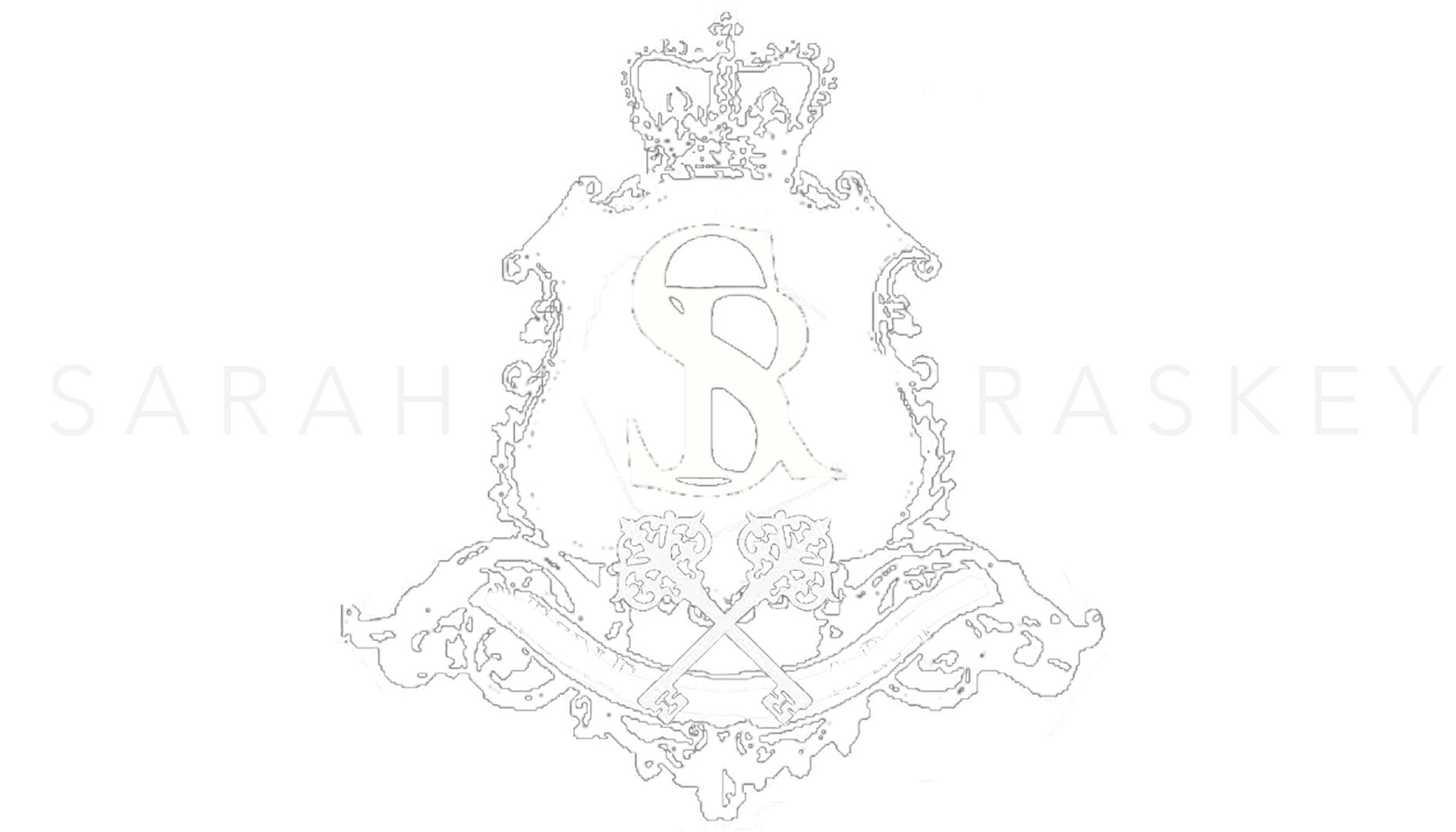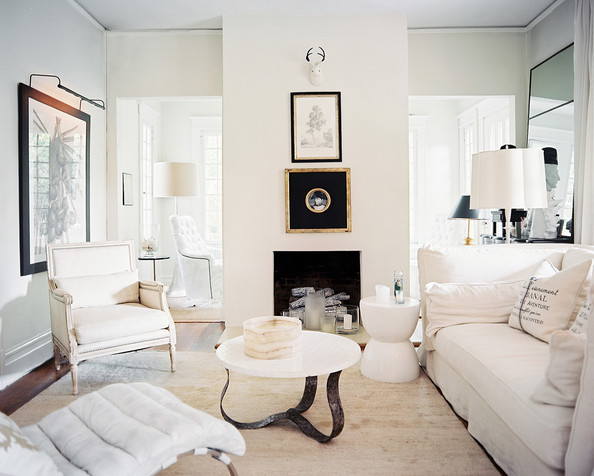THERAPY
Sarah Raskey MA LCPC ATR is a licensed clinical professional psychotherapist and certified art therapist. Additionally, she is an adjunct graduate professor at the School of the Art Institute (SAIC), where she teaches the Masters level marriage and family art therapy courses.
She received her Masters in Counseling Psychology: Art Therapy, from the Adler School of Professional Psychology in Chicago in 2004. She has been an active member of the American Art Therapy Association since 2002.
Sarah Raskey is the co-founder/owner of OPEN AVENUE THERAPY, a Chicago-based private psychotherapy practice since 2008. She has provided services to numerous populations for the past 10 years.
Sarah continues to be best known and sought after for her specialization in working with artists, musicians, entertainers, and other creative types, as well as her relational and spiritual work.
PAST WORK
Adjunct Graduate professor, at DePaul University where she has taught counseling skills as well as marriage and family therapy courses since 2010. From 2005 to 2011, Sarah provided individual, couples, and group therapy services at a non-for-profit mental health facility working predominantly with individuals who had recently been discharged from a psychiatric hospitalization. She has worked with a diverse variety of populations including the homeless, those suffering from severe mental illness and/or disability, sexual assault and trauma survivors, those dealing with domestic violence, loss and grief, addictions, and teens at risk of failure due to gang and drug involvement. She specialized in both crisis prevention and intervention.
During her time at that facility, Sarah pioneered the facilities’ first art therapy program. She led several different groups weekly that met under her supervision for 6 years. These groups included a Women's Empowerment Group and a Children’s Art Expression Group. In addition to the program, Sarah co-created and ran an Art Therapy summer camp (Expression Connection) that serviced at risk youth who had been diagnosed with a mental illness, and who were often living below the poverty level. Her experience also includes having worked at a domestic violence shelter for several years with transitioning families.
THERAPIST STATEMENT
“I work especially well with those looking to be inspired/motivated in new and fresh ways. For me the process of therapy begins with learning to understand ourselves and how we came to be who we are in the context of our life story. When we can see our strengths and vulnerabilities as necessary and valuable parts of ourselves, we increase our capacity to change and grow.
I view therapy as a creative and exciting endeavor entered into by brave people who are looking to improve the quality of their lives. After all, life can be wonderfully intense, curious, beautifully messy and complex all at the same time. It is no wonder why we find ourselves needing support at times. Therapy is an opportunity to learn, explore, discover, heal, gain insight and clarity… but overall it is capable of setting the stage for us to reclaim and create what we want to see in ourselves, our relationships and our lives.
I am passionate about being a part of the therapeutic and artistic journey with my clients. I consistently push myself in new directions in order to uncover as much as I can regarding the best use of therapeutically proven methods, as well as cutting edge methods, techniques, theories, etc. I spend a great deal of time researching, experimenting and exploring unique tools for my clients to best enhance their growth and evolution (personal/psychological/spiritual) both in and out of their sessions. It is most important to me that my clients ultimately find greater joy, love and meaning in their lives with a deeper sense of purpose in the world.”
TREATMENT ORIENTATION
Sarah’s treatment style is eclectic as she believes in creating “tailor-made” specific approaches to the therapeutic experience she provides, based on each and every individuals own unique therapeutic needs and personal story. She is a trained and registered art therapist. Sarah has also been trained in Cognitive-Behavioral Therapy (CBT), Dialectal Behavior Therapy (DBT), Motivational Interviewing (MI), and draws upon the humanistic, existential, strengths-based, and client-centered approaches as the foundation for her work.
SPECIALTIES
Sarah is often sought after by creatives and those in the entertainment field, based on her extensive background and understanding of the artistic/creative journey and spirit and how that relates to lifestyle and mental health. She is also highly regarded as a relationship expert and educator as she has helped countless couples build stronger relationships, improve their sex lives, and achieve a heightened level of intimacy. Below is a partial list of additional specialties:
Creative: Art and Music Therapy / Dreamwork / Creativity Focused Therapy (revitalizing creative vision, creativity blocks, burnout, emotional complexity)
Addiction and Recovery: Sex / Self-Injury / Substance Abuse: alcohol, drugs (prescription/illegal)
Relational: Sexuality / Intimacy / Communication / Conflict Resolution
Mental and Emotional Health: Depression / Anxiety / Mood Disorders / Personality Disorders / Adjustment Disorders
Trauma: PTSD / Abuse / Loss and Grief
Life Coaching: Self Exploration / Personal Growth and Development / Motivational Therapy / Life Transitions / Setting and Reaching Life Goals
Spirituality: Spiritual Health and Well-Being / Energetic Healing
Sarah travels often in order to provide therapeutic services, hands on workshops, presentations, and private consultations for groups/teams who are in need of artistic and or emotional recharging, connection, and support. She is an experienced speaker/presenter and masterful at taking all things psychological and making them interesting, moving and understandable for a wide variety of audiences. She brings a unique combination of experience in contemporary culture, ancient wisdom traditions, and insight into the psychodynamics of the human mind and relationships.
ART THERAPY
Sarah is proficient in art therapy and utilizes the use of art therapy with many of her clients. Art therapy is a most effective type of therapy as it can address the body, mind, and spirit simultaneously. Art therapy can be instrumental in promoting uncensored creative authenticity, in gaining a better understanding of our behavior both past and present, and in helping us face the unknown.
Based on the belief that when words are not enough, we can turn images, symbols, and other artistic means to express our truths more fully and openly. In telling our stories through art, we find a direct path to emotional and transformation...giving art therapy the potential to change lives in profound ways.
COMMON ART THERAPY QUESTIONS:
Do I need to be an artist to try out art therapy?
YOU DO NOT NEED ANY ARTISTIC SKILLS or EXPERIENCE TO PARTICIPATE IN ART THERAPY. Art therapy is often considered a "back door" that allows for the ultimate freedom in expression... it is more about getting to the heart of a matter artistically, than it will ever be about making a work of art that is aesthetically pleasing. Remember that people all over the world have been creating art since the beginning of time in order to make sense of the world around them, to heal, to celebrate, to create ritual or closure, and to express themselves on a soul level. It makes sense that it is still considered a vital resource in terms of self work.
Can't I ONLY just talk out my problems to get at the really deep stuff?
While most art therapy sessions combine the use of art and traditional talk therapy, current research in the study of the human brain consistently points to non-verbal modalities, as being stronger ways of accessing material that may be too traumatic or painful to talk through, or even think about without excessive distress. Making art is a way of introducing an additional kind of communication that often illuminates a different aspect of one's experience, allowing for deeper understanding.
Why see an art therapist when I can take art classes, or make art on my own?
While clients find that they are able to develop a sense of mastery of art materials if they take art classes, they do not have the expertise to use their art making skills to resolve conflicts and inhibitions. Art therapy works in the service of gaining new perspective and solutions to deeply ingrained old as well as new issues, as an art therapist is trained to assist clients in finding meaning and understanding regarding overwhelming and confusing feelings, through the clients artistic forms.


